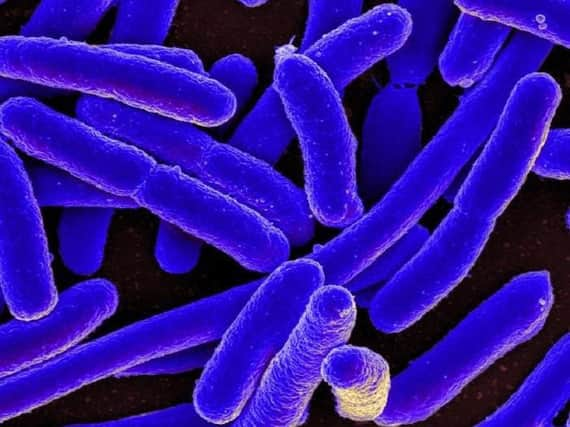Scots warned about massive E.coli outbreak at popular Egypt resort


Scot tourists have been struck down with E.coli infections after visiting the Egyptian costal resort of Hurghada and there are fears this number will rise.
Around 25 people have been affected across the UK so far, with the youngest victim a baby less than one year old and the oldest 67.
Advertisement
Hide AdAdvertisement
Hide AdAdvice suggests the bug is likely spread by contaminated water or food and are urging Brits to avoid salads, unpasteurised ice cream, cheese and ice cubes in their drinks which may be made from contaminated water.
The illness has an incubation period of three to five days, so those infected may not yet be showing symptoms.
Nick Harris, head of travel at Simpson Millar Solicitors, said the resort was a 'hot-spot for illness' and he wasn't surprised by the ongoing outbreak.
He said: "This is very concerning and Scots tourists are quite rightly worried. If you visit this resort you could be putting your life in someone else's hands.
"This area is a repeat offender with very poor hygiene practices and obviously they haven't cleaned up their act. We have dealt with lots of cases with people left seriously ill and with life long health complications.
"The standards over there are much more lax then in the UK. When you eat over there you are taking part in Russian roulette, as you have to rely on other people to wash their hands to stop you getting ill. Tour companies need to do much more to ensure their customers safety."
The sickness bug E.coli is linked to poor hygiene practices and is spread by infected faeces contaminating water or food.
Symptoms include diarrhoea and severe abdominal pain and cramps, vomiting and nausea as well as bloody diarrhoea.
Advertisement
Hide AdAdvertisement
Hide Ad"Diarrhoea may occur even in travellers who stick strictly to food and water precautions; in many destinations the risk is determined by local food hygiene and sanitation practices," the agency said.
The department also states that some of those infected may not show any symptoms at all, while "others may go on to develop serious complications".
"Young children are at higher risk of infection along with older adults," the department said.
It goes on to advise those visiting the area or staying in the resort hotels to wash their hands 'thoroughly' before and after eating food.
It adds: "Salads and fresh herbs (including in drinks) should be avoided.
Avoid buffet style food and instead choose freshly prepared, thoroughly cooked food that is served piping hot where possible.
"Freshly squeezed fruit juice may be made with unwashed fruit; juice from sealed cartons is preferable," the department said.
It goes on to say to avoid ice cubes as they may have been made with contaminated water and only drink bottled water with an 'intact seal.'
Advertisement
Hide AdAdvertisement
Hide AdSo far, at least four people have been hospitalised across the UK and one person had developed haemolytic uraemic syndrome (HUS). This rare condition can cause kidney failure and in rare instances be fatal.
A 19-year-old spent 11 days in intensive care back in the UK last year after developing suspected HUS during a family trip to the same region.
A spokesman for Health Protection Scotland said: "Health Protection Scotland is aware of a small number of cases of E.coli infection in individuals returning from Egypt this year and surveillance is ongoing."
The Scottish Health Protection travel team added: "E.coli is a common cause of travellers’ diarrhoea and is spread by eating and drinking contaminated food and drinks. It can be prevented by following good food and water hygiene practices at all times while on holiday, even if staying in high end, all-inclusive resorts.
"Anyone returning from abroad with severe symptoms should seek medical attention through their general practice and should tell their GP that they have been abroad."
This is the third year in a row that the resort has seen an outbreak of E.coli affecting tourists.
The coastal resort became notorious last year after Susan and John Cooper died in suspicious circumstances while staying at the Steigenberger Aqua Magic hotel in Hurghada.
Egyptian authorities claimed after a post-mortem the couple had died from E.coli - something their daughter Kelly Ormerod disputes.
Advertisement
Hide AdAdvertisement
Hide AdThey died shortly after their grand daughter had walked out of their room due to a 'funny smell'.
Food and hygiene Tests carried out by independent health inspectors at the Steigenberger Aqua Magic hotel later revealed "high levels ' of E.coli.
Thomas Cook evacuated 301 guests from the hotel before admitting that 'something went wrong'.
The company no longer sell any holidays to the hotel.